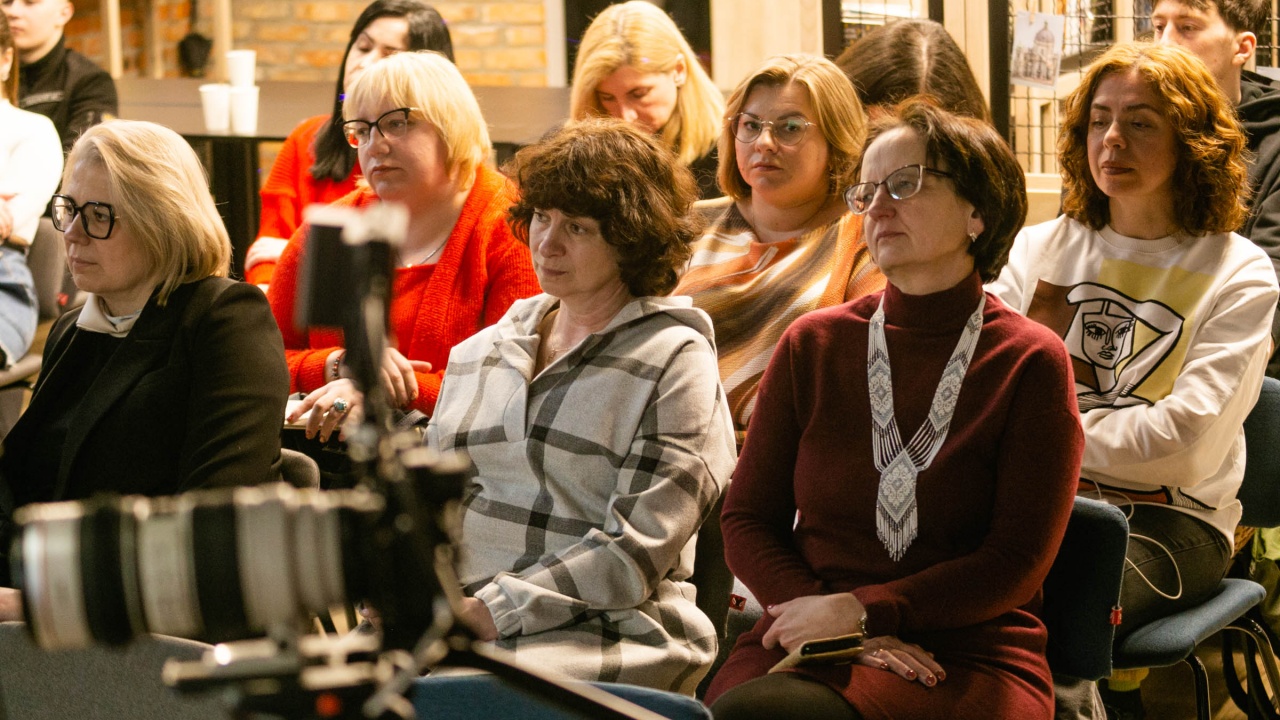This was probably the main conclusion drawn by the participants of the discussion “War-Related Sexual Violence,” which took place on March 7 in Lviv. The discussion on this painful but important topic was organized by the DOCU/CLUB Film Club Network in cooperation with the Ukrainian Women Lawyers Association “JurFem” and the Lviv Media Forum. Nina Khoma Nina Khoma, project manager of the DOCU/CLUB Network, noted that the idea of the discussion arose from the need to amplify the voices of those who have experienced such violence: “For various reasons, they cannot speak about their experiences publicly. We have to respect that; nevertheless, we should try to be the voices of people in need of help. Victims of sexual violence in Ukraine are often stigmatized, and during the war, this problem has only become worse. That's why we want to do our best to make society more aware and to prevent the problem from being silenced.” Data provided by the Prosecutor General's Office helps outline the scale of the problem. According to the Prosecutor's Office, since the beginning of the full-scale war, 274 cases of conflict-related sexual violence (CRSV) have been recorded in Ukraine as of March 1, 2024. The victims are 177 women, 97 men, and 13 minors. The highest number of cases of sexual violence was recorded in Kherson, Donetsk, Kyiv, and Kharkiv regions. The list of recorded crimes includes rape, mutilation or violence against genitals, forced nudity, threats and attempts to rape, and forcing to watch sexual abuse of loved ones. Based on the revealed facts of sexual violence in the occupied territories, 40 Russian servicemen were notified of suspicion. Indictments against 25 people were sent to court, and two people were sentenced to 12 and 10 years in prison. Olha Babchuk and Myroslava Kvasnytsia Myroslava Kvasnytsia, coordinator of the Survivor Relief Center, is convinced that the real number of CRSV cases in Ukraine is much higher: “Many people do not identify themselves as victims of sexual violence. They don't understand that public nudity at checkpoints or threats of rape are also crimes. I think that the media should pay more attention to this topic, so that society learns to identify CRSV, and victims can distinguish between types and forms of violence and seek help.” Nowadays, people talk more often about women who suffered sexual violence during the war in Ukraine. But there are also men who were captured or held hostage in the occupied territories. They also need long-term and systematic assistance and rehabilitation, but we have virtually no specialists to work with this category of victims. “It is also difficult to find out about cases of sexual violence against children. We often receive reports from parents about children's anxiety, difficulty concentrating, and eating disorders. It is only in the process of the child's communication with a psychologist that the fact of the kid’s exposure to sexual abuse can be revealed,” Myroslava Kvasnytsia shares her experience. In her opinion, communication with the specialists of the Survivor Relief Center is the first step for victims to recover and regain strength, which prepares them to move on and testify about these crimes. Khrystyna Kit, chairwoman of the board of the Ukrainian Women Lawyers Association “JurFem,” noted that 90% to 95% of conflict-related sexual violence cases are investigated in the absence of the perpetrators of the crime, i.e. Russian military personnel. The law enforcement system identifies perpetrators based on the testimony of victims or witnesses, using special facial recognition software. In many cases, it is electronic evidence that forms the substance of such cases and makes it possible to prove the guilt of suspects and bring them to justice. “The more people tell about their experiences, the easier it is to identify the criminals. Moreover, all the evidence collected by our law enforcement agencies is transferred to and processed in close cooperation with the International Criminal Court. The ICC is entitled to investigate crimes against humanity and prosecute senior officials, commanders, and military and political leadership. Therefore, the testimony of each person matters,” the lawyer explains. During the discussion, Khrystyna Kit raised one more crucial issue - compensation for the victims. In all cases where they represent victims, “JurFem” attorneys claim compensation for the damage caused. A unified register of damages is being created in Ukraine, the funds of which will be accumulated at the expense of the property of the Russian Federation. Compensation for moral and health damage is a matter of more than one year, but every victim is entitled to it. Discussion after the screening An equally important aspect are specialized services provided by the state to victims of war-related sexual violence. "In fact, 80% of the assistance to victims is provided by NGOs. It was adequate in 2022, it could be tolerated in 2023, but in 2024, it is simply unacceptable. It is the duty of the state to organize systematic and comprehensive assistance for victims of torture and sexual violence. This does not require allocation of separate funds. We need trained professionals to build trust between them and the victims. Survivors of torture, including sexualized torture, will not seek help from state or municipal institutions if they are not guaranteed confidentiality. This is the cornerstone of the entire system," believes Khrystyna Kit. She called on media representatives and the public to advocate for the draft bill on the status of victims of sexual violence during the armed aggression of the Russian Federation. This draft bill provides for a system of urgent interim reparations for victims of sexual violence, as well as assessment of the needs of victims and application of a range of assistance measures to help them recover. Our task is to do everything possible to urgently implement this system in Ukraine. Photo: Dmytro Shatskyi The development of the DOCU/CLUB Network is funded by the United States Agency for International Development (USAID), the Embassy of Sweden in Ukraine, the National Endowment for Democracy (NED) and the Fondation de France. The opinions, conclusions, or recommendations are those of the authors and compilers of this publication and do not necessarily reflect the views of the governments or charitable organizations of these countries. The authors and compilers are solely responsible for the content of this publication.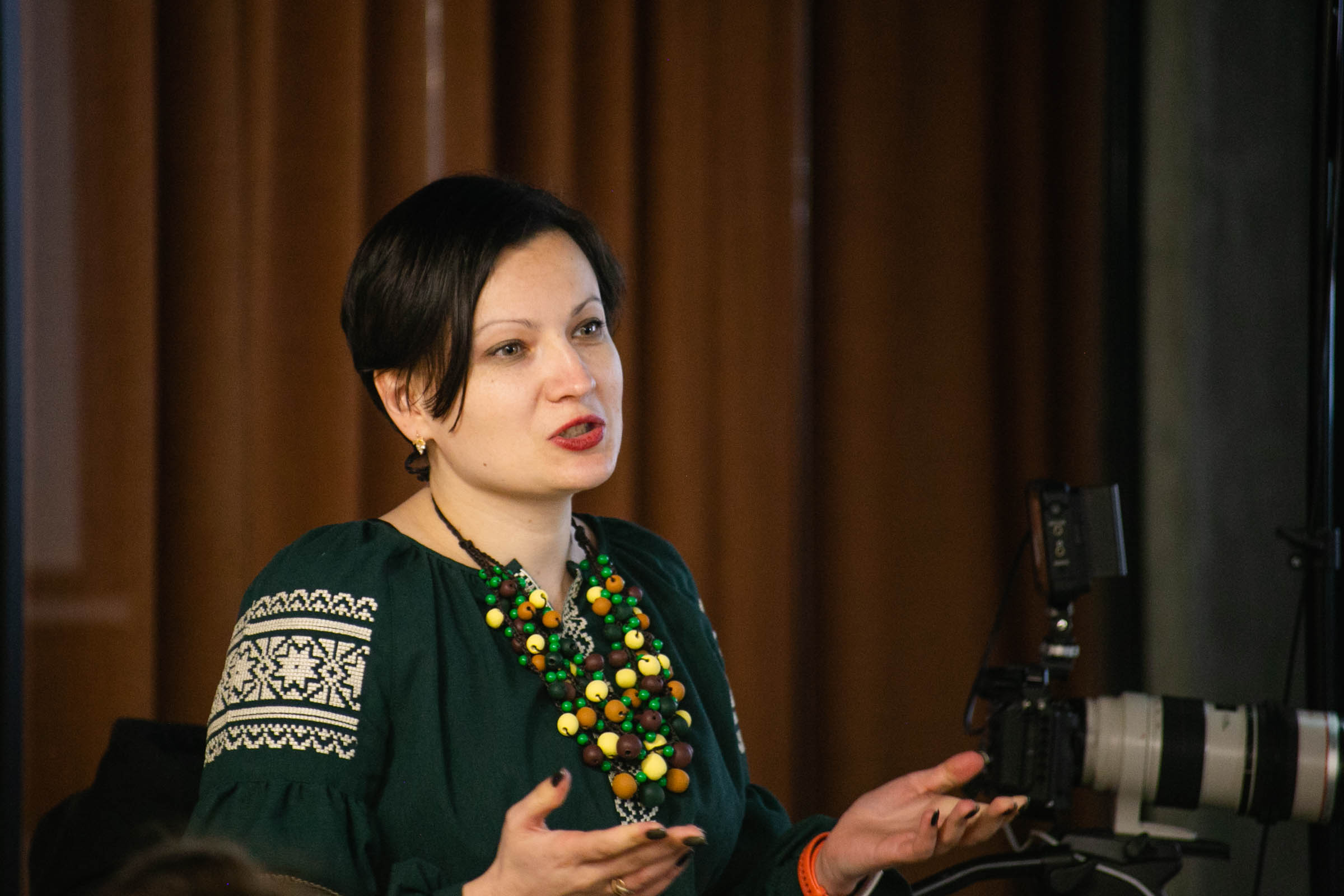
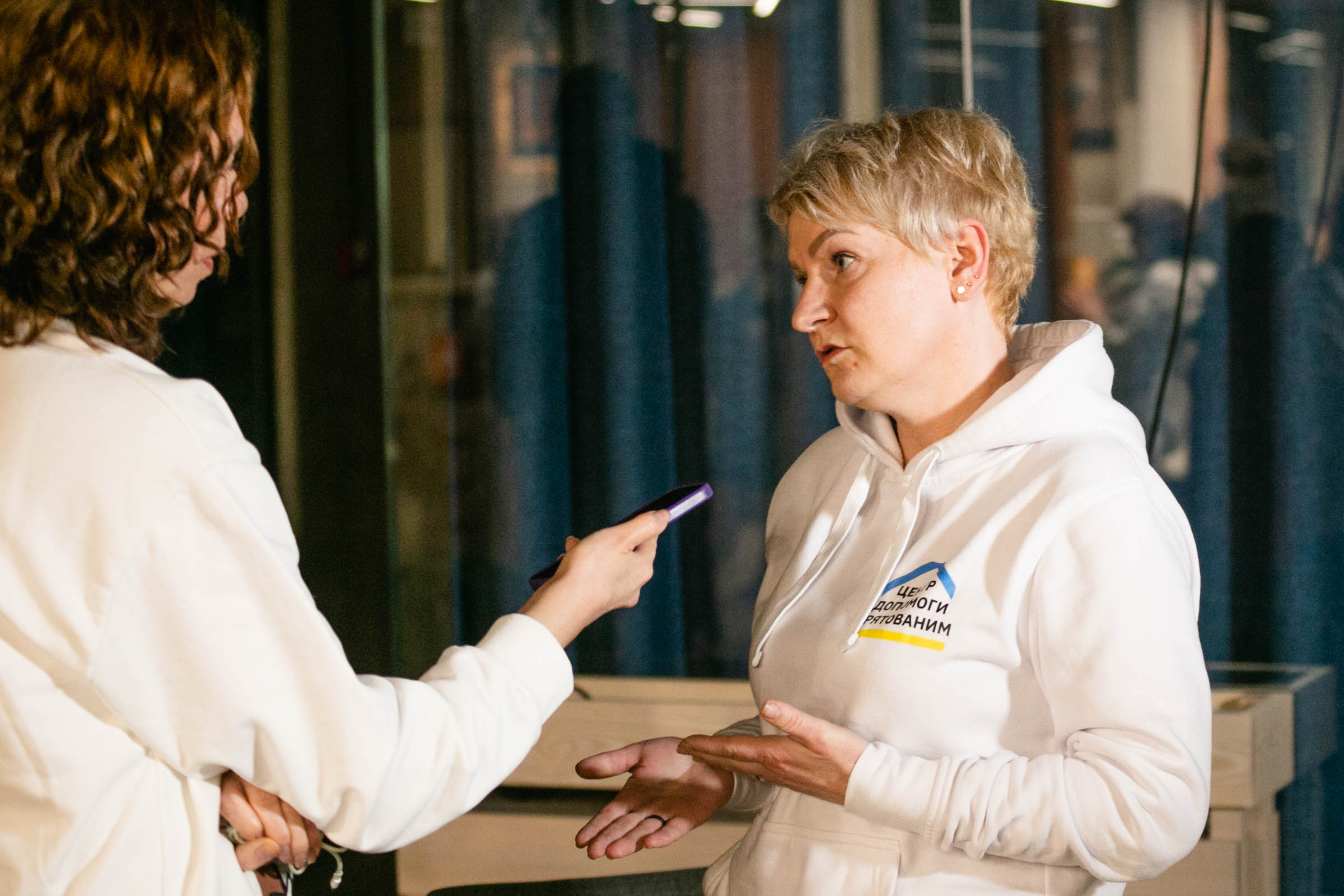
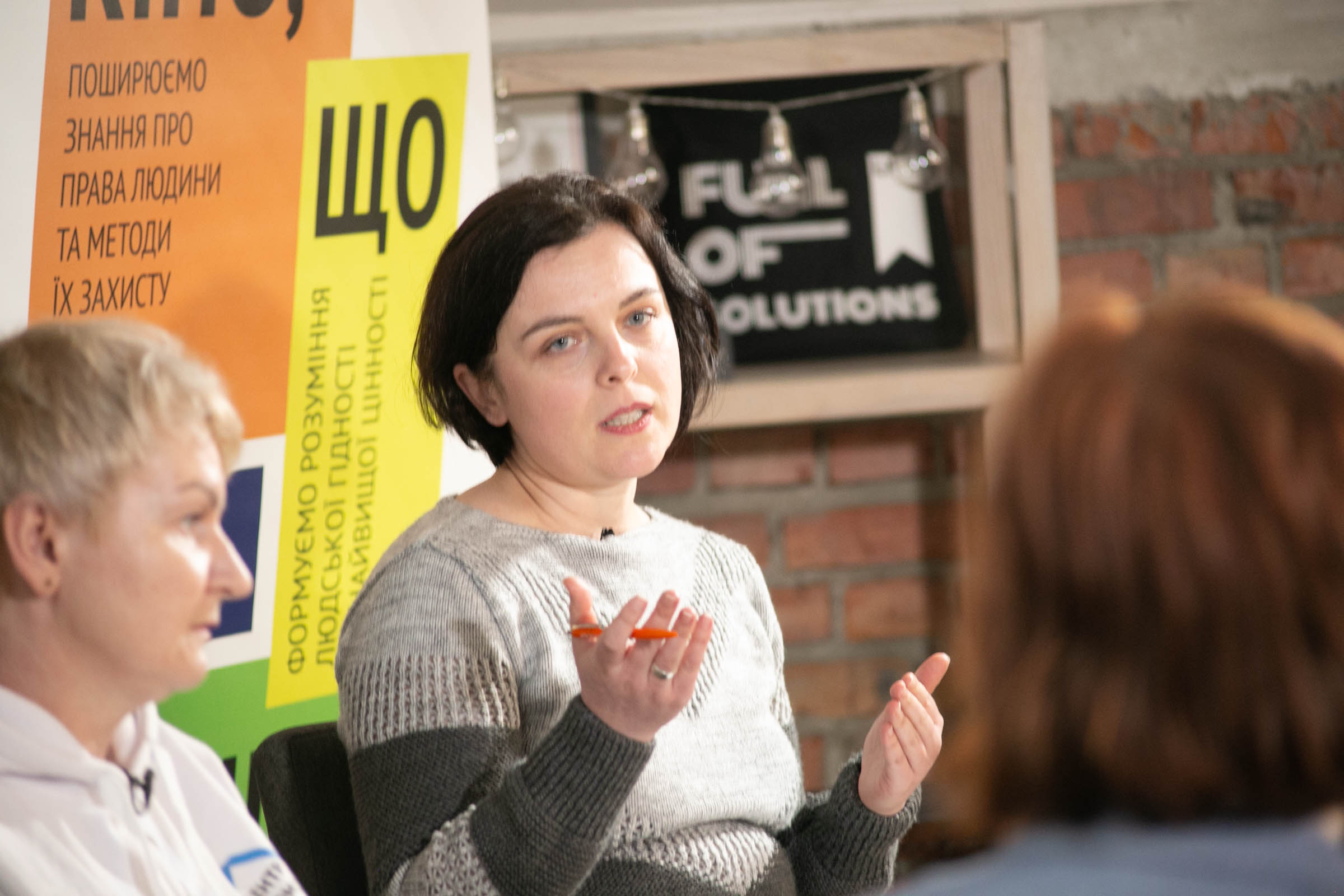 Khrystyna Kit
Khrystyna Kit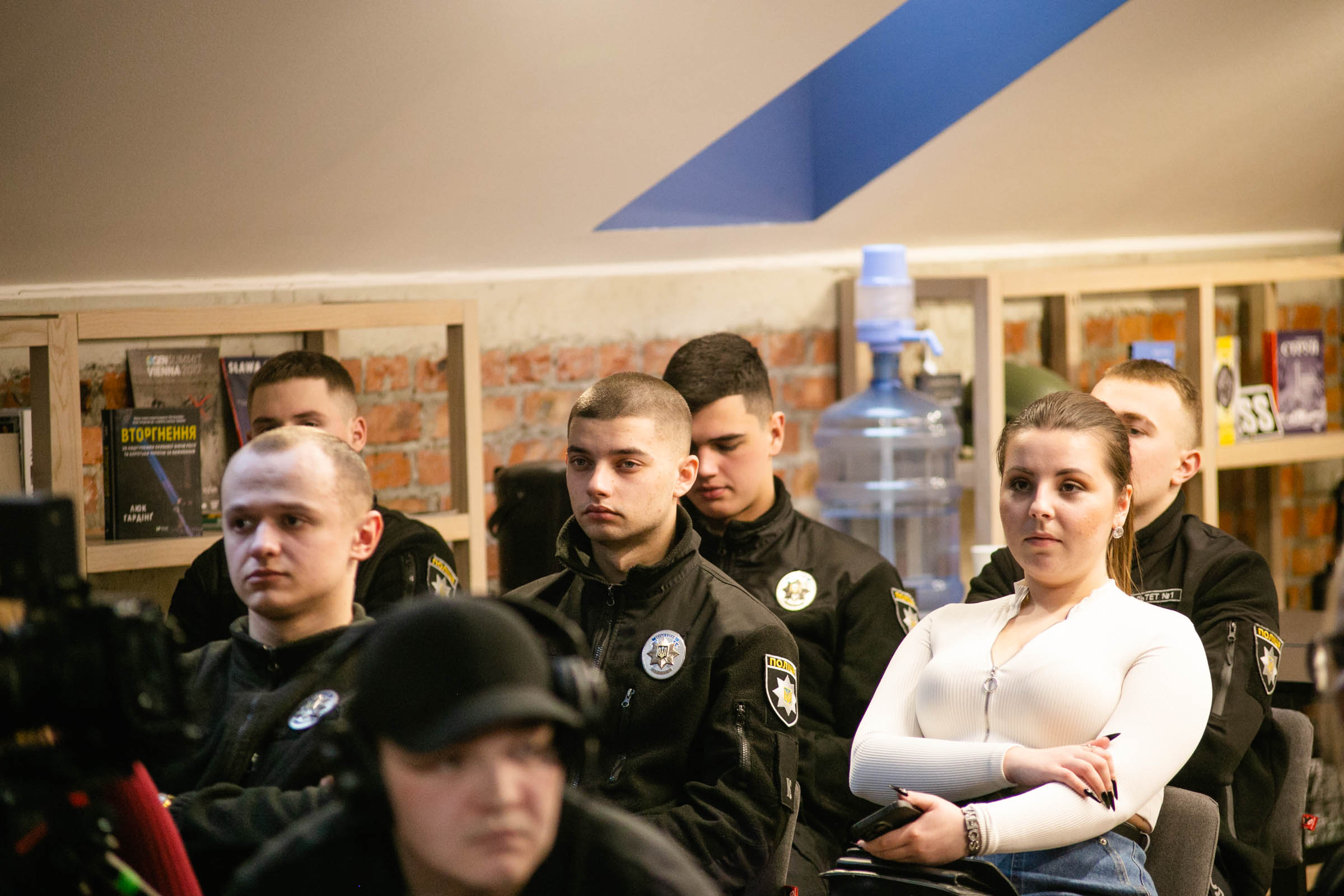
CONFLICT-RELATED SEXUAL VIOLENCE: HOW TO HELP THE SURVIVORS?
14 March 2024
Statute of limitations does not apply to conflict-related sexual violence. These crimes can be investigated 5 or 10 years later, when the victim is ready to report what happened. Reprinted from the Hromadskyi Prostir portal.
